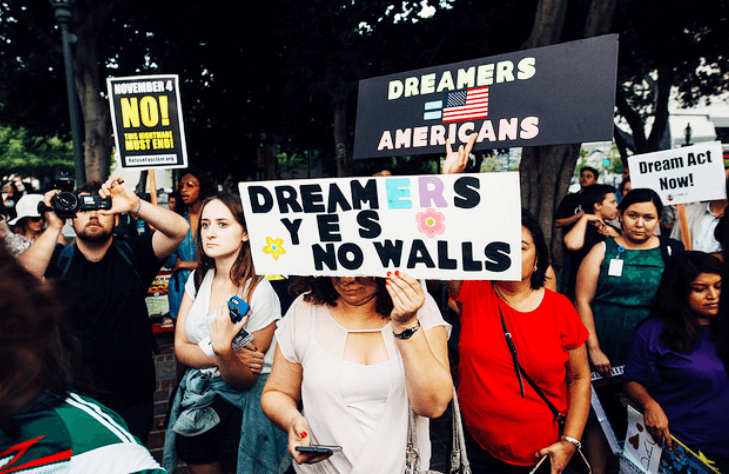The affects of DACA at UMW
4 min read
Flickr | Creative Commons
By OLIVIA BRIDGES
Staff Writer
The University of Mary Washington is home to approximately four thousand undergraduate students according to UMW’s webpage. However, less than six months from now, eight students will no longer be able to continue their education as a result of President Trump’s executive order to end the Deferred Action for Childhood Arrivals program, otherwise known as the Dream Act.
According to the Department of Homeland Security’s official website, the Obama-era DACA policy, announced in June 2012, was established to protect children brought to America at sixteen years of age or younger and those who are currently under the age of thirty-one.
Under the DACA policy those with DACA status were able to live in the United States legally for two years. Prior to the expiration of their two-year status, one had the option to apply for a renewal of that status.
“The way it works is they have a certain amount of time that they [have] legal status under DACA provisions and before that term expires, they normally submit an application for an extension,” said Dr. Jose Sainz, the Director of UMW’s Center for International Education.
Prior to President Trump’s Executive Order, individuals who possessed a DACA status could apply to college, pay taxes, and were eligible for work authorizations. However, with DACA no longer in place, the individuals living under this status are ineligible to apply for renewals and their status becomes illegal.
A recent email sent out to faculty and staff revealed there are currently eight students at Mary Washington who are a part of the Dream Act.
“When students with DACA status apply to the university, they are just treated like any other because it is a legal status,” said Sainz.
Currently, the UMW students that possess a DACA status are not working directly with any of the legal or educational departments at the University. Students affected by the DACA program ending are mostly likely in close contact with an immigration lawyer to discuss what steps they should take following the expiration of their status.
Despite the university not being able to work directly with the eight DACA students, President Paino and his senior leadership team are monitoring the situation as closely as they can, as stated in the email sent out on Sept. 6.
In the email Paino expressed his disappointment for the end of the program. Paino also stated that he supports the members of the school’s community who are here because of DACA and wants them to finish their education here at UMW.
The Young Democrats Club holds the same view as President Paino and plan to do everything in their power to support and defend the eight students affected.
“This blatant disregard for the lives of young Americans is contrary to everything positive our nation claims to support: tolerance, diversity, open mindedness, and the American Dream itself,” the Young Democrats club officially stated.
The club condemns President Trump’s executive action collectively in their statement.
“This show of xenophobia and, indeed, violence towards law abiding Americans on behalf of our president is proof that these values mean nothing to him.” The Young Democrats statement continued. “Dreamers are embedded into the fabric of not only our nation, but also the UMW community, and we are better and stronger as a result.”
The ending of DACA is a very controversial issue that has incited varying responses for many at UMW.
“Former President Obama called the DACA a temporary solution, the thing about temporary solutions is that they have to end eventually,” said sophomore John Flood, the publicity chair for University of Mary Washington’s College Republicans club.
Flood provided an analogy to further explain his opinion.
“Suppose a man steals food to feed his family; does that mean he should not be punished? No! There must be some form of discipline, if we ignore the law then all we would have is chaos,” said Flood.
Flood believes that even though it is reasonable to feel empathy for those who apart of the DACA program, there still should be a form of punishment because they are in the country illegally, but he does not think that they should receive prison time.
“There must be some righting of the wrong preformed,” Flood concludes.
Flood’s statement is on behalf of himself and his views do not reflect the views of the College Republicans. The members of the College Republicans have many diverse opinions on DACA ending. The club does not have an official stance on the issue.


